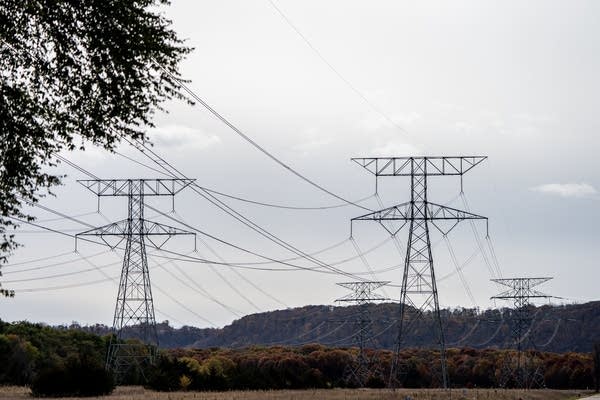Xcel seeks 20% electric rate increase over three years

Power lines carry energy near Red Wing, Minn. Minnesota's largest utility, Xcel Energy, is asking to raise its electricity rates by around 20 percent over the next three years.
Evan Frost | MPR News
Go Deeper.
Create an account or log in to save stories.
Like this?
Thanks for liking this story! We have added it to a list of your favorite stories.


